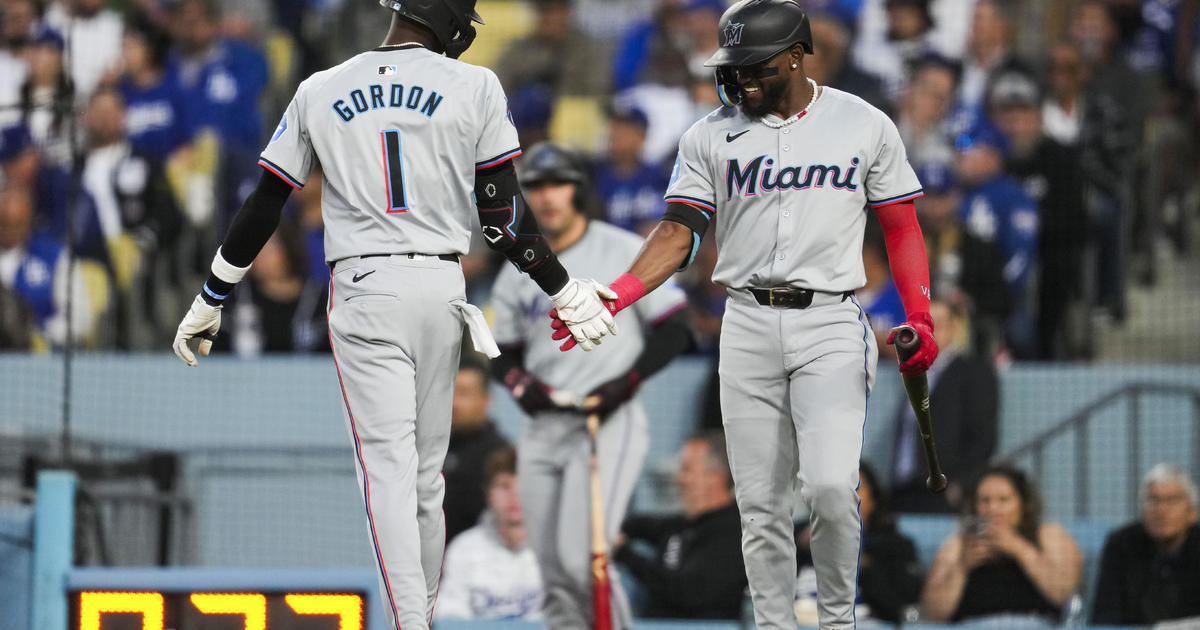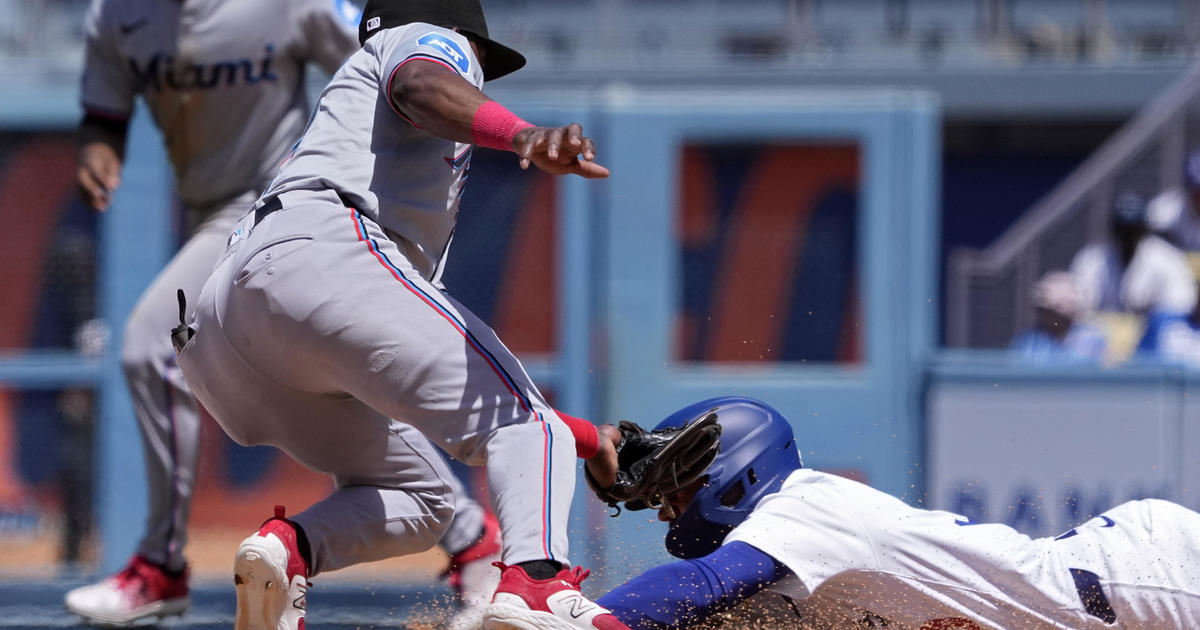Exclusive Excerpt From John Feinstein's 'Where Nobody Knows Your Name'
CBS Sports Radio host John Feinstein continues his highly successful writing career with his 32nd book, Where Nobody Knows Your Name. The book chronicles the lives of those trying to reach Major League Baseball. Some for the first time, some for one last time. The following is an exclusive excerpt from the book.
When the 2011 baseball season ended, Washington Nationals pitcher John Lannan was excited. He was also a bit apprehensive.
“I felt like I had lived through a lot of bad times with our team,” he said. “I thought we were on the verge of something good happening. I also knew they were planning to do a lot in the off-season. I guess I didn’t understand quite how much.”
Lannan had turned twenty-seven the day before the Nationals’ season finale. He had pitched to a record of 10-13, hardly anything to write home about, but his ERA had been 3.70 in thirty-three starts—the best numbers of his career. He was durable, he was left-handed, and he had battled back after a slump in 2010 that had resulted in being sent briefly down to Double-A—after beginning the season as Washington’s opening-day starter for the second year in a row.
“Being sent down was a little bit of a shock to my system,” he said. “But I was pitching poorly, and I needed to work on my mechanics and try to get myself straightened out. I knew what they were trying to do, so it didn’t bother me very much. I didn’t like being there, but I understood the reasoning behind it.”
Lannan had made it to the majors quickly after being drafted out of Siena College by the Nationals in 2005. Because the team had so little pitching, a lot of young pitchers were rushed to the majors to see what they had. Lannan was twenty-two when he got the call in the summer of 2007. He had started the season with the Nationals’ Class A team in Potomac but had moved quickly up the ladder through Double-A and Triple-A. When his ERA through six starts at Triple-A was 1.66 he found himself in Washington.
“It happened very fast that year,” he said. “But to me it was, ‘Okay, this is the way it’s supposed to be.’ I had a lot of confidence in myself. It wasn’t as if I started the year thinking I’d be in the majors by July, but I did believe I was going to be in the majors in the near future.”
What was hard to believe was where he found himself in his third major-league start. He had gotten a win in his second outing, and his turn came up again on August 6 in San Francisco. As luck would have it, Barry Bonds was sitting on 755 home runs—meaning he was tied with Hank Aaron for the all-time lead in home runs. Lannan didn’t really care if Bonds had taken steroids in order to catch Aaron; all he knew was he didn’t want to give up No. 756 and become a footnote in baseball history.
Four times Bonds came to the plate that night. Once, Lannan walked him. The other three times he got him out: on a foul to third base; a double-play ground ball; and a strikeout on a 3-2 pitch in the seventh inning.
“The last at-bat is pretty vivid in my mind,” he said, smiling. “The place was packed, and here I was a couple of weeks out of the minors. Everyone was standing and it was a 1–1 game. When I got him, I walked off the mound wondering if the whole thing was a dream. I mean, seriously, a year earlier I’d been pitching for the Savannah Sand Gnats, and now I was striking Barry Bonds out when he was trying to break the all-time home run record. Are you kidding?”
Lannan became a regular in the Nats’ rotation for the next four years except for the brief stint in Harrisburg in 2010. He had been arbitration eligible for the first time in 2011, meaning his salary had taken a huge jump from the $458,000 he had made in 2010 to $2.75 million in 2011. He was arbitration eligible again for the 2012 sea- son. The previous year, he had accepted the Nats’ salary offer with- out going to arbitration. When the team offered $5 million, Lannan and his agent countered by asking for $5.7 million. When the team refused, that meant Lannan’s case would be heard by an arbitrator who would pick one salary or the other. There was no compromise.
Very few baseball negotiations ever actually get to an arbitration hearing because neither side wants to leave themselves in the hands of an arbitrator. More often than not, team and player will meet some- where in the middle. There’s another reason not to go to arbitration: the hearings can get ugly.
“The team’s job is to explain to the arbitrator why the player is asking for too much money,” Lannan said. “That means they have to say a lot of things about you that you might not want to hear. I don’t think I took it personally. I know that some guys do, and that can hurt your relationship with the team.”
Lannan had been pleased when the Nationals made a major off-season trade to acquire another left-handed starter, Gio González, from the Oakland Athletics. That appeared to leave them with a rotation of the rising superstar Stephen Strasburg; Jordan Zimmermann, another young talent; González; Lannan; and another young lefty, Ross Detwiler.
“When we got Gio, I was fired up,” he said. “I thought it meant we were going to have a deep rotation—young, but deep.” In fact, at twenty-seven, Lannan was the oldest of those five.
Then, on February 2, everything changed.
First, Lannan heard that the Nats had signed Edwin Jackson, a talented, though erratic, right-hander, to an $11 million free-agent contract. Later that day, he lost his arbitration hearing.
“When they signed Jackson, I had a feeling my days with the team were numbered,” he said. “I knew [manager] Davey [Johnson] loved Detwiler and they hadn’t signed Jackson for that kind of money to not start. I did the math and realized I was in trouble. Even so, I went to spring training telling myself to just do my job and the rest would take care of itself. I knew I was still a good pitcher.”
It was a completely different sort of camp for Lannan. Twice in the past he had known early that he was the opening-day starter. The spring rotation had been built around making sure he would be ready to take the ball when the season began. Even a year earlier, when the Nationals had brought in veteran Liván Hernández and named him to start the opener, Lannan’s only doubt was whether he would start game two or game three.
Now he wasn’t sure where he would start the season, much less when he would start.
Often, he pitched exhibition games out of the bullpen, following one of the four locked-in starters—Strasburg, Zimmermann, Gonzáles, and Jackson—into games. He pitched well, though, and ten days before the team broke camp to head north, Johnson told him that he would be the team’s fifth starter. Relieved, he called his wife, and they made plans to go apartment hunting in Washington. They had always rented in-season in the past but this time had waited to look for a place until Lannan was told he was going north.
They found a place they liked in the Foggy Bottom area of down- town Washington, about ten minutes from Nationals Park, and signed a lease just before the Nationals played their annual exhibition game in D.C. Many teams will play one game in their home park to give the stadium a run-through before opening day. On April 3, the Nats played the Boston Red Sox on a cold, sunny afternoon.
“I was sitting in the dugout taking it easy when [shortstop] Ian Desmond came in during the third inning and said he needed a pair of sunglasses,” Lannan said. “I went up the tunnel to get him some, and I heard Davey [Johnson] coming up behind me as I got to the clubhouse.
“He said, ‘Hey, come into my office for a minute.’ I’m not sure why he said it, but he also said, ‘Don’t worry, you aren’t getting traded.’ So I had no idea what it was about.
“I got in there and he started talking about making tough decisions and how well Ross had been pitching. After a couple of minutes it suddenly hit me that he was sending me down. I was completely stunned. I’m not even sure I heard anything he said the last couple of minutes. When he stopped, I looked at him and said, ‘You’re sending me down? Seriously? You’re sending me down?’ I couldn’t believe it. I’m sure I vented for a little while. I was angry. Finally, I went back in the clubhouse and asked to see [general manager Mike] Rizzo.
“I vented some more. I don’t think I said or did anything unprofessional, but I was really upset. It just caught me completely off guard. One minute I’m getting Ian a pair of sunglasses; the next minute I’m packing for Syracuse.”
Click here to purchase Where Nobody Knows Your Name on Amazon
Excerpted from Where Nobody Knows Your Name by John Feinstein. Copyright © 2014 by John Feinstein. Excerpted by permission of Doubleday, a division of Random House, Inc. All rights reserved. No part of this excerpt may be reproduced or reprinted without permission in writing from the publisher.
You May Also Be Interested In These Stories



